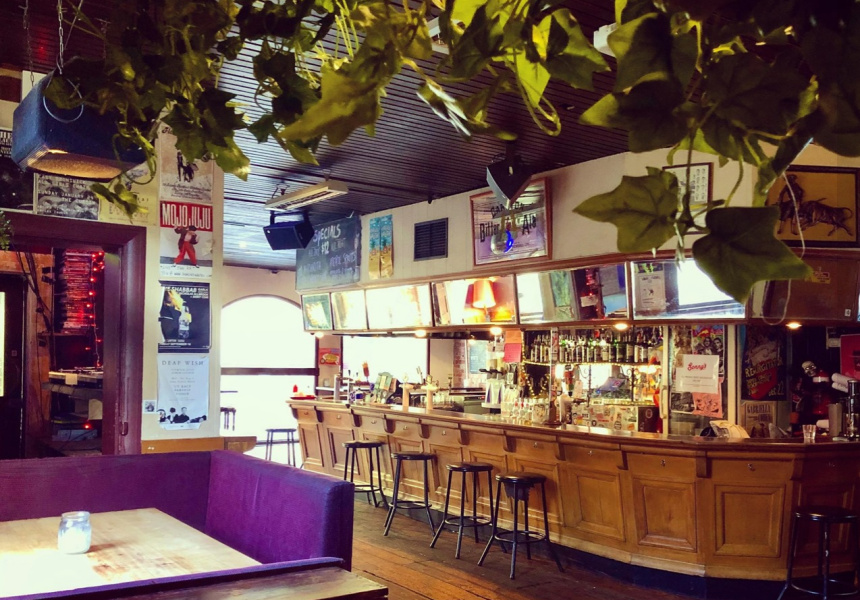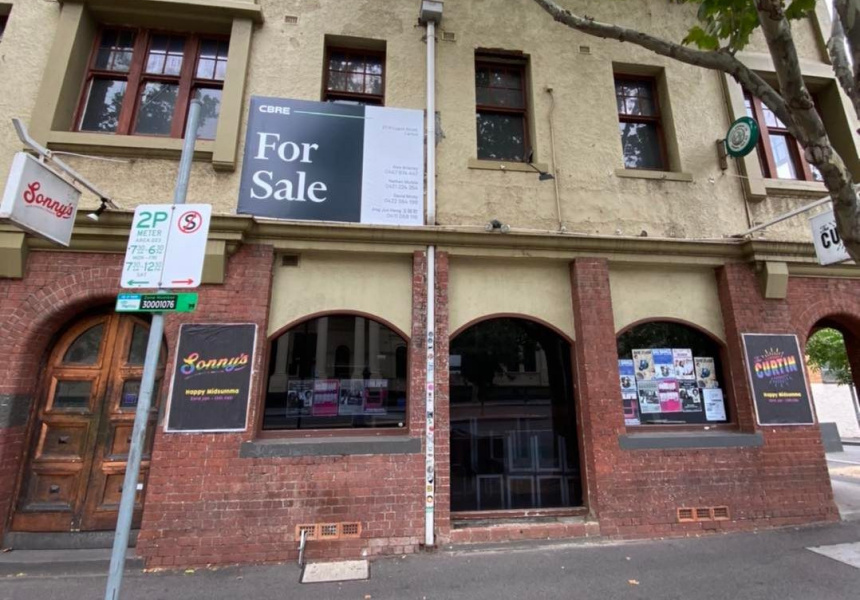“You’d be a mug to sell this pub to a developer.” That’s what Luke Hilakari, secretary of the Victorian Trades Hall Council, guessed former prime minister and Curtin Hotel regular Bob Hawke would have said of news back in February that the historic pub was up for sale. And yet, that’s exactly what has happened.
Earlier this month the well-known watering hole of the Labor and union movements, local music incubator and beloved live venue was sold to an unknown offshore investor.
Today, as Hilakari hinted back in February, the Building Industry Group union body issued a green ban on the development – a kind of strike action unionised workers can take to protect sites from developments deemed culturally, socially or historically vandalistic.
Stay in the know with our free newsletter. The latest restaurants, must-see exhibitions, style trends, travel spots and more – curated by those who know.
SIGN UP“Whatever needs to be done to protect the building, the union movement and its community partners will do that. If the builders want to move a bulldozer in, they will be met with an active picket line,” Hilakari told Broadsheet on Friday morning.
Pioneered in the 1970s by the Builders Labourers Federation unions in NSW and Victoria, green bans saved iconic Melbourne landmarks like the Queen Victoria Market, Melbourne City Baths, Flinders Street station, Hotel Windsor and Princess Theatre from destruction, but have seldom been evoked since.
Union leaders hope the ban will draw attention to the issue of ill-conceived, profit-driven developments that disregard the cultural significance of institutions like the Curtin Hotel.
“Our movement has a long and proud history of protecting important cultural sites and buildings in Melbourne – and the John Curtin Hotel is one of them. This is about saving an important gathering place for the future, but it’s also about preserving our city’s heritage,” Hilakari said on Thursday.
“This green ban sends a clear message from Victorian workers: we will not stand by and let our precious, historic building be destroyed by international greedy developers.”
In a show of support from town hall, the building has been granted an interim “significant” heritage protection. Nicholas Reece, the city’s deputy lord mayor, says the order will offer the site “the strongest possible level of protection” when development applications are considered.
“It is so important that we protect our heritage pubs and live music venues – not just because they are important heritage buildings, but because of their irreplaceable social and cultural value,” Reece said in a statement.
Preserving a building’s structural heritage is one thing, but as fascadism runs rife, a new respect for the significance of what goes on inside these venues is emerging.
“The Curtin has been a community meeting place for more than 160 years. Our goal is to ensure that it remains a pub and live music venue, and doesn’t become a facade with a block of apartments behind it,” said Simon Ambrose, CEO of the Victorian division of Australia’s National Trust.
On Friday morning, Hilakari told Broadsheet a collaborative bid of over $6 million dollars from RMIT and the Electrical Trades Union was turned down by the seller in favour of a lesser offer from the offshore developer.
“It’s a cash grab, at the community’s expense”
Verified sales data was unavailable at the time of publication. American commercial real estate giant CBRE Group, who brokered the sale, did not respond to Broadsheet’s request for comment.
When asked what message unions hoped to send to developers with the green ban, Hilakari was resolute.
“Don’t even bother. Do you want to deal with protests? Do you want to deal with workers walking off the site? Is the amount of money you think you’re going to make on this site even going to happen if there’s this much disruption?”
“These pubs hold Melbourne’s past, our stories, and community. We can’t keep losing them like this."


